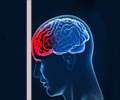Sports organizations are looking for better concussion detection methods, and a sense of urgency has grown with the release of the 2015 film Concussion.

‘The National Football League, America's most popular sport -- still use "seat of the pants" methods for concussion diagnosis.’





Although some concussions may be unavoidable in contact sports, an important concern is getting a rapid diagnosis to keep an injured player off the field, to avoid potentially severe secondary impacts. Also key is followup, to determine when a player is ready to return. When players take a hit, "they will always say they are fine," said Adam Gross, chief executive of Bethesda, Maryland-based startup RightEye, which has developed a one-minute eye-tracking test that helps reveal the extent of trauma to the brain.
"This is a tool that could keep parents from sending their kids (with concussions) back on the field." RightEye says its test -- with a specially configured computer that monitors how quickly the eyes follow moving objects -- can be useful for monitoring someone recovering from a concussion.
Eye movement offers insight into brain health and brain trauma, and can also help detect other disorders such as dementia or Alzheimer's disease, according to the company. The service, being marketed to sports teams and eye professionals, can be used to help improve performance of athletes and others such as military marksmen.
"This can be used in the locker room, but it is more valuable in helping people recover from a concussion," said RightEye president Barbara Barclay. Another system designed to be used on the sidelines in sports is the King-Devick test, a tablet-based system which can be easily administered after an impact.
Advertisement
- Players 'obviously concussed' -
Advertisement
"All NFL games will have four or five doctors on the sidelines but you can still sometimes see a player go back on the field who is obviously concussed," he said. Such concerns were raised at last year's Super Bowl, when Patriots' star Julian Edelman returned to action even after he appeared disoriented.
The NFL, which has implemented a "concussion protocol" for suspected brain trauma, announced at the start of the season it would be evaluating new technologies including from the Illinois-based King-Devick group as part of player safety efforts.
The King-Devick test requires an athlete to read single-digit numbers displayed on cards or on a tablet to test "saccadic" eye movement -- very fast, almost imperceptible movements from one eye to the other -- which according to research can be used to diagnose concussion and other neurological disorders. Other systems are also being explored by tech startups.
Arizona-based startup Saccadous is developing a tablet-based system which, unlike those of RightEye and King-Devick, tracks involuntary "micro" eye movements. "We measure 100 micro-movements to make a determination about what is going on in the brain," said Saccadous co-founder and chief executive Craig Cafarelli
He added that using this system measuring involuntary "micro-saccades" is better than a cognitive test which can be gamed by athletes who want to return to action. "Our goal would be to have a baseline of every player in a healthy state, so we know if we scan them again, we could compare it against the baseline," he said.
- Collegiate solutions -
NCAA, the governing body for US collegiate sports, in January reached a settlement with athletes to provide $70 million for research in concussion testing.
A handful of universities have agreed to equip their American football players with helmet sensors that measure the speed, intensity and location of hits to the head as part of its concussion research. Some high school football programs also use helmet sensors.
Data collected will help improve detection and provide a foundation to improve helmet design and ratings, according to Stefan Duma, head of Virginia Tech University's department of biomedical engineering and mechanics, which is working on the research.
The University of California at Los Angeles meanwhile is using a grant from the NCAA and the Department of Defense to use "big data" to assess concussion injuries and recovery.
The goal "is to develop scientific, evidence-based tools that will enable doctors to more accurately gauge when it is safe for an athlete to return to play," UCLA neuroscientist Christopher Giza said in announcing the program last year.
- An app for that -
New York University researchers meanwhile developed an app which works with Apple's HealthKit platform to measure signals on how a concussion patient is progressing.
By seeing daily variations in a person's stride, heart rate and ability to concentrate, "we are no longer bound by visits to the doctor's office," said Paul Testa, an NYU researcher on the project and emergency room physician. "We have so many people who scribble down symptoms on small pieces of paper, and the app takes care of that."
Patients using the Apple Watch and iPhone can automatically provide data on progression by monitoring health signals such as gait and heart rhythms. The app is being used for NYU hospital patients as well as others around the US who download it.
Dennis Cardone, an NYU sports medicine physician who is part of the project, said the research could be applied to treatment for concussions. "There is some evidence that possibly we've been wrong in putting athletes at complete rest after a concussion," he said. "There are some studies which suggest they may do better with a low-level activity program. So we hope to learn more with this program."
Source-AFP









